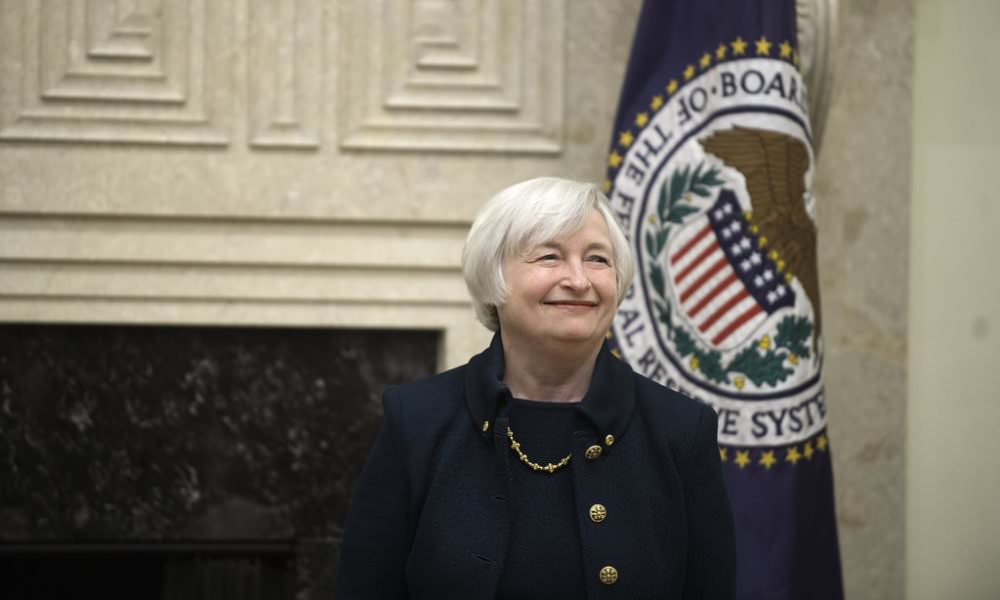
The Big Question: Is ethereum finally catching up with bitcoin?
Bitcoin, ethereum and litecoin were all pointing higher on Thursday morning in Asia, with large gains seen in ethereum, and slight gains in bitcoin and litecoin.
By midday, ethereum had edged up 5.68 percent to $752. Although a bit more subdued than litecoin, ethereum has also made huge gains over the past a few days. Etheruem is now up about 67 percent over the course of the week.
Litecoin also surged 1.22 percent to $316 as of midday Thursday in Asia, following a correction yesterday that brought the prices on Coinbase and Bitfinex closer together.
Litecoin gained more than 130 percent on Monday and Tuesday, reaching as high as $420 at one point on Coinbase, before falling back. On Wednesday, litecoin dropped about 11 percent on Coinbase while it was up around 1 percent on Bitfinex.
Bitcoin was also up 0.66 percent to $16,799 at midday on Thursday. The slight gain came after big losses on Wednesday. The virtual currency dropped about 6 percent on Wednesday, after a 16 percent increase over the previous two days.
Outgoing US Fed Chair Janet Yellen voiced criticism against bitcoin on Wednesday, saying the cryptocurrency is a “highly speculative asset” and “not a stable source of value,” according to media reports.
Main Market Movers – Mid-day Asian Trading Session
| Indexes | Value at Midday | Daily Change |
| Japan- Nikkei 225 | 22,704 | -0.24% |
| China-Shanghai Composite Index | 3,296 | -0.20% |
| Hong Kong –Hang Seng | 29,216 | -0.02% |
| South Korea-KOSPI | 2,503 | 0.92% |
| Australia-ASX 200 | 6,020 | -0.02% |
| S&P 500 E-Mini Futures | 2,670 | 0.06% |
Major Asian equities were narrowly down on Thursday morning, following the US Fed delivering a much-anticipated US rate hike, but voicing concern over inflation next year and rate hikes in China and Hong Kong.
In Japan, the Nikkei 225 Index was off 0.24 percent to 22,704 at midday. The loss, though small, came even after fresh data out on Thursday suggested positive signs in the Japanese economy. The Markit/Nikkei Japan Manufacturing Flash Purchashing Managers Index rose to 54.2 in December, up from 53.6 in November – the highest reading in more than three years.
On the Chinese mainland, the Shanghai Composite Index edged down 0.20 percent at midday on Thursday to 3,296. That came after the People’s Bank of China raised the country’s short- and medium-term interest rate by 5 basis points on Thursday morning, in response to the US rate hike. Though the move was unexpected, the increase was minimal and will likely not make any significant impact.
In Hong Kong, the Hang Seng Index was down 0.02 percent to 29,216 at midday. The Hong Kong Monetary Authority also raised the base rate by 25 basis points on Thursday after the US Fed’s rate hike.
Down under, the ASX 200 was down a slight 0.02 percent to 6,020 after midday in Australian trading.
Stocks in South Korea edged up on Thursday morning. At midday, the Kospi was up 0.92 percent to 2,503 at midday.
The S&P 500 E-Mini Future was up 0.06 percent to 2,670.
The Fed on Wednesday raised interest rates for the third time this year as expected, while maintaining a projection of three more rate hikes in 2018. However, the thing that got the attention of investors was concerns raised by the Fed about the low inflation, downplaying expectations for a tightening in 2018.
Currencies
The Japanese yen lost 0.04 percent against the US dollar at midday Thursday, changing hands at 112.56 per dollar.
The Chinese yuan firmed 0.07 percent against the US dollar to 6.62084 per dollar.
The Australian dollar firmed 0.43 percent on the dollar, changing hands at 1.3035 per dollar at midday.
Commodities
WTI Oil gained 0.09 percent to $56.70 per barrel.
Brent Crude edged up 0.22 percent to $62.79 per barrel.
Gold was up 0.24 percent to $1,258 an ounce.
News across Asia
In China, investment in the real estate sector cooled in November, following a slew of measures from the government to crack down on speculation in overheated real estate markets. New figures out on Thursday showed that property investments grew 4.6 percent in the month, slower than the 5.6 percent growth in October.
Take away: Though the government measures, which include tough mortgage rules and sales regulations, could contain the overheated housing market, it could also very well weigh on the overall economic growth in China.
In Japan, the government is reportedly expected to reduce new bond issuance for the fiscal year 2018. Total bond issuance could fall as much as several hundred billion yen in 2018 from the current 34.37 trillion yen, the Nikkei reported.
Take away: The decision is likely to have been supported by rising tax revenues from the government following a recovery in economic growth in recent months.
Featured image from Flickr.
Disclaimer: The author owns bitcoin, ethereum and litecoin. He holds investment positions in the coins, but does not engage in short-term trading.
